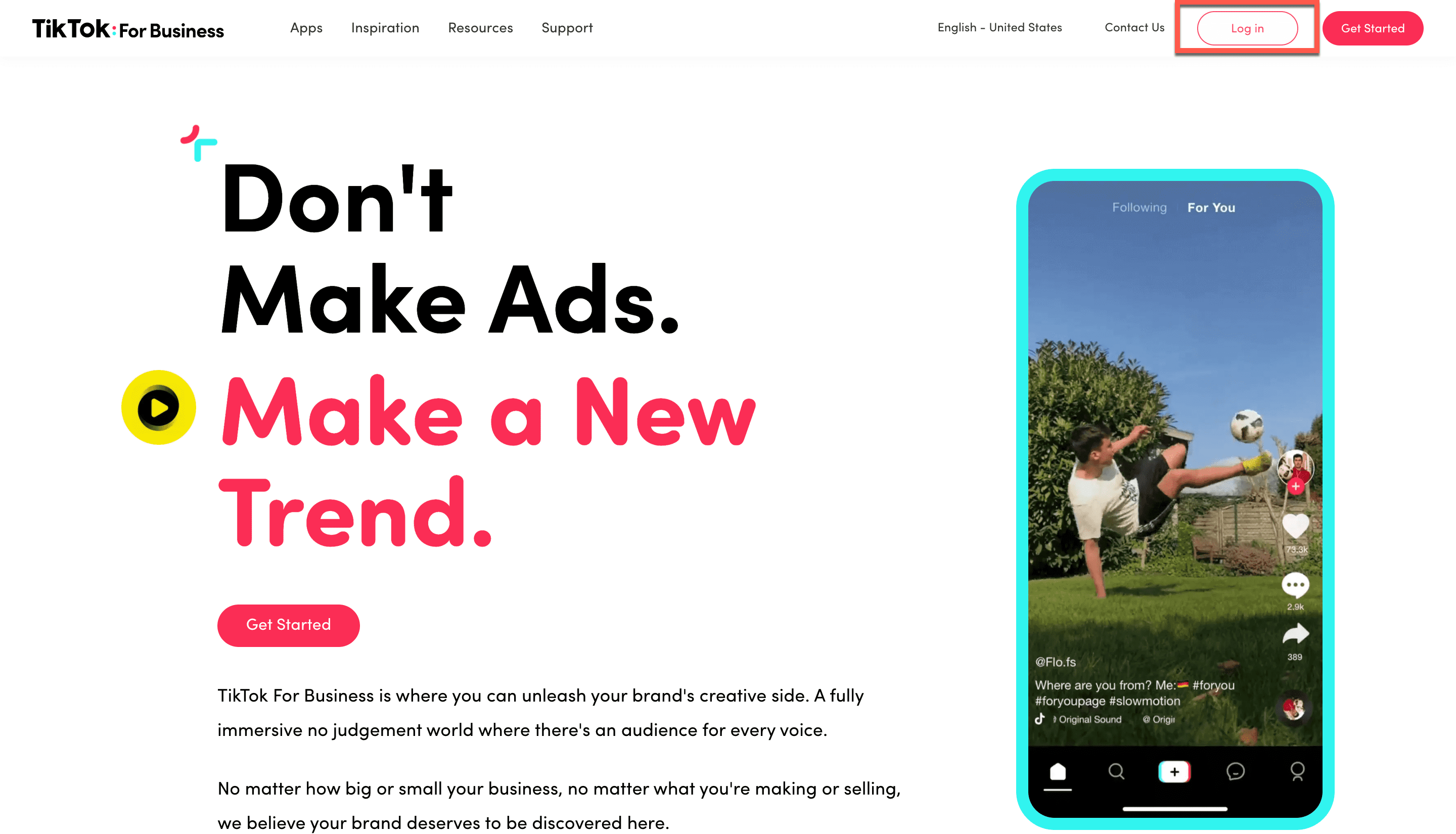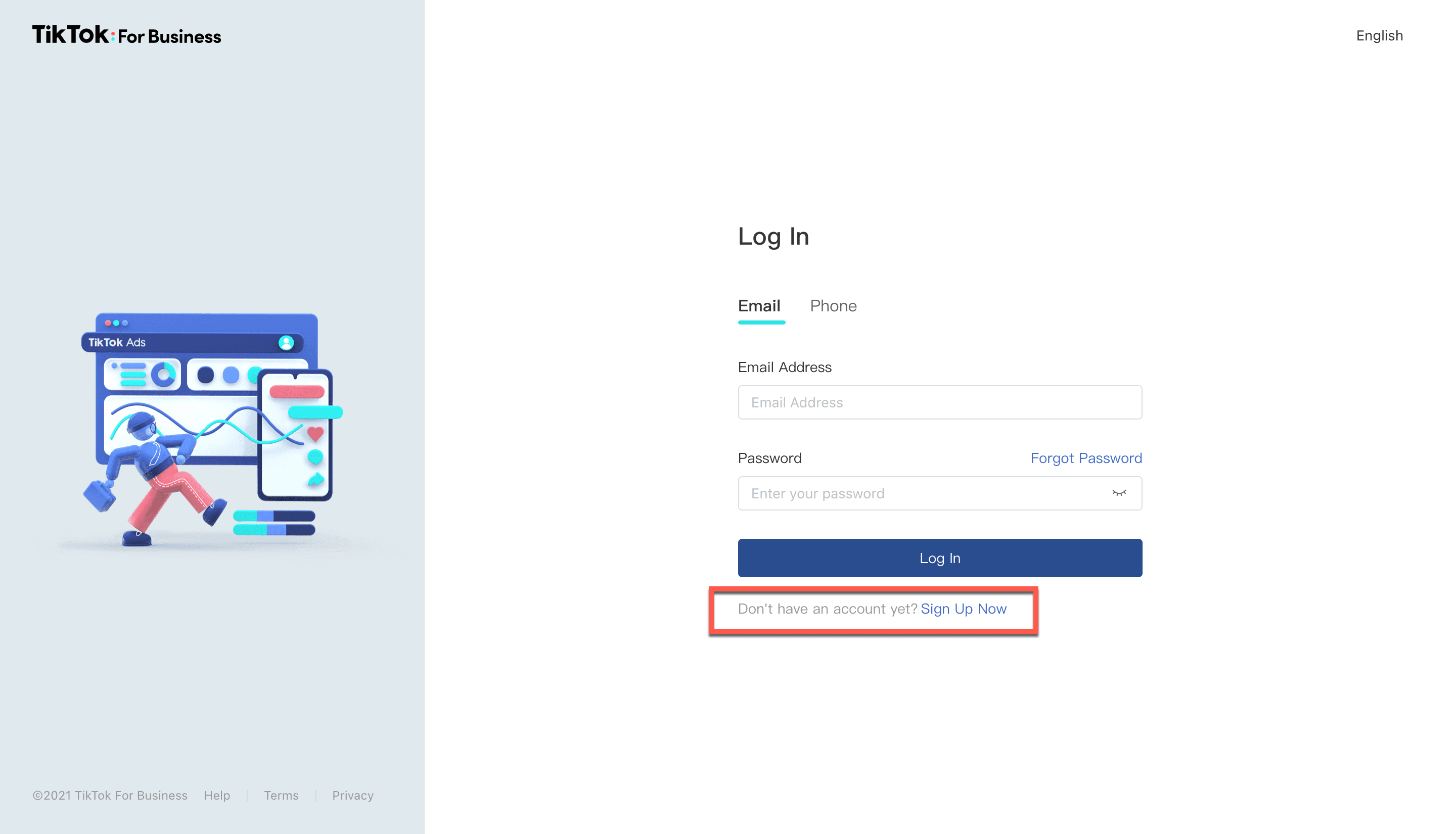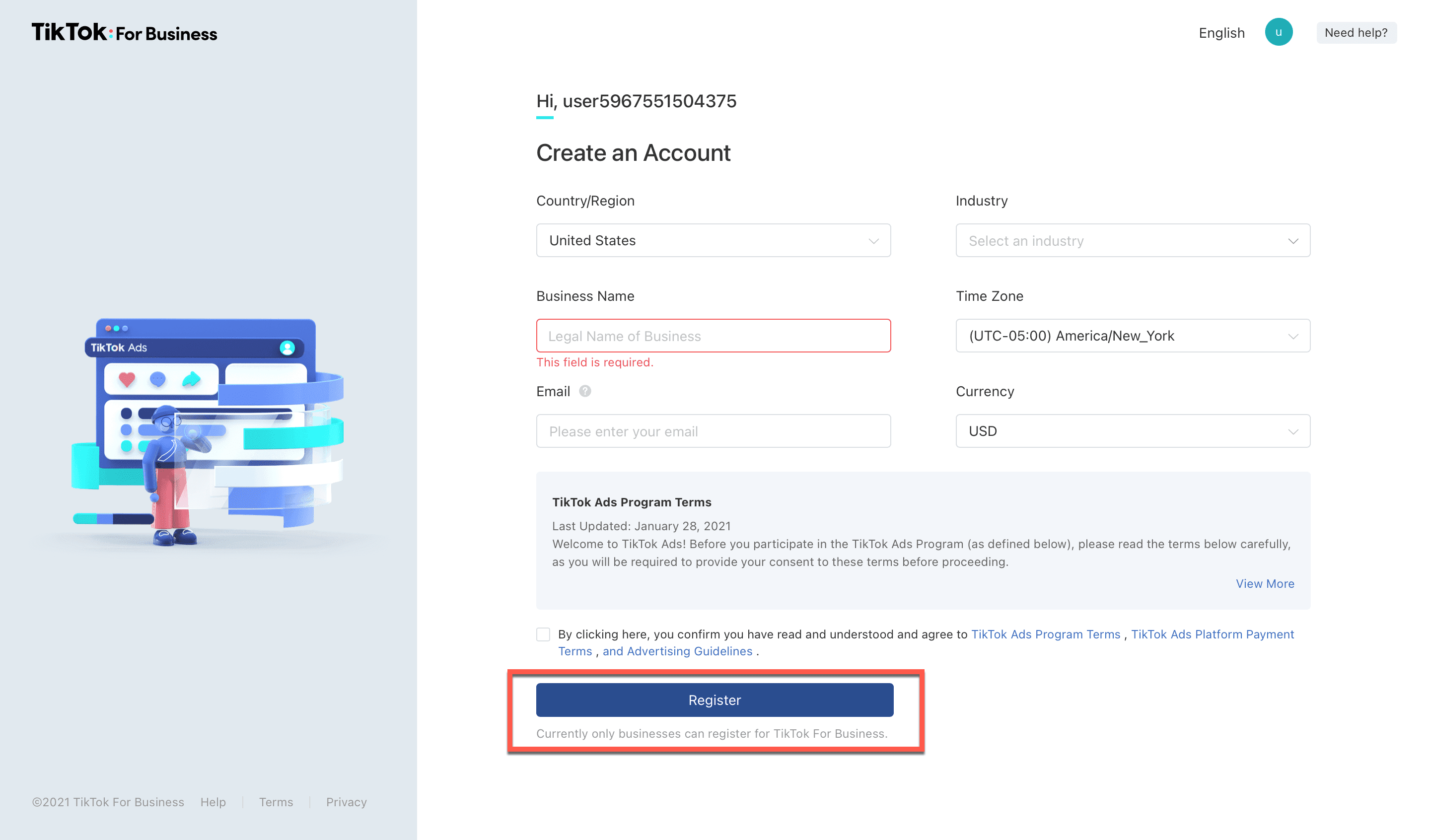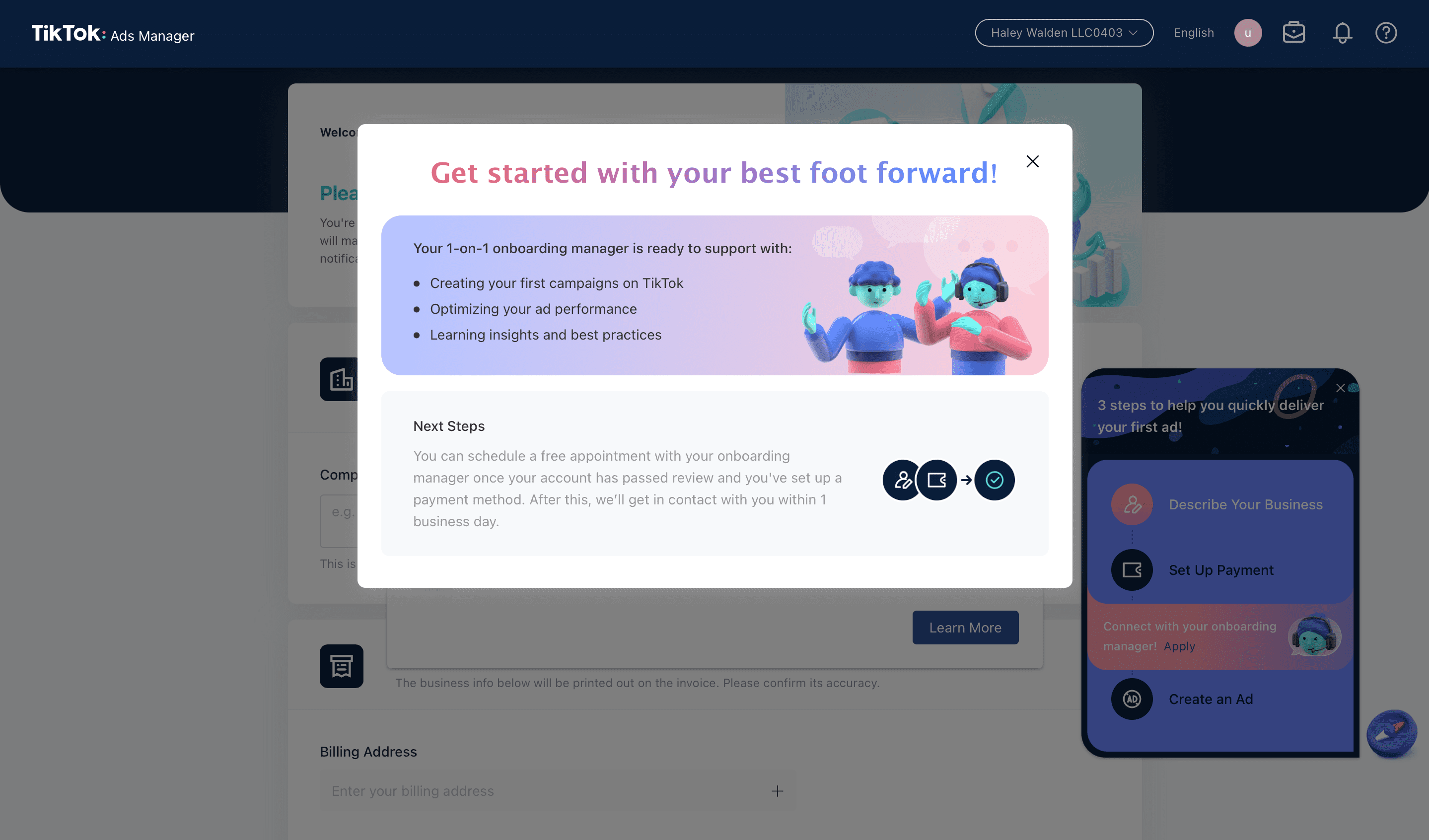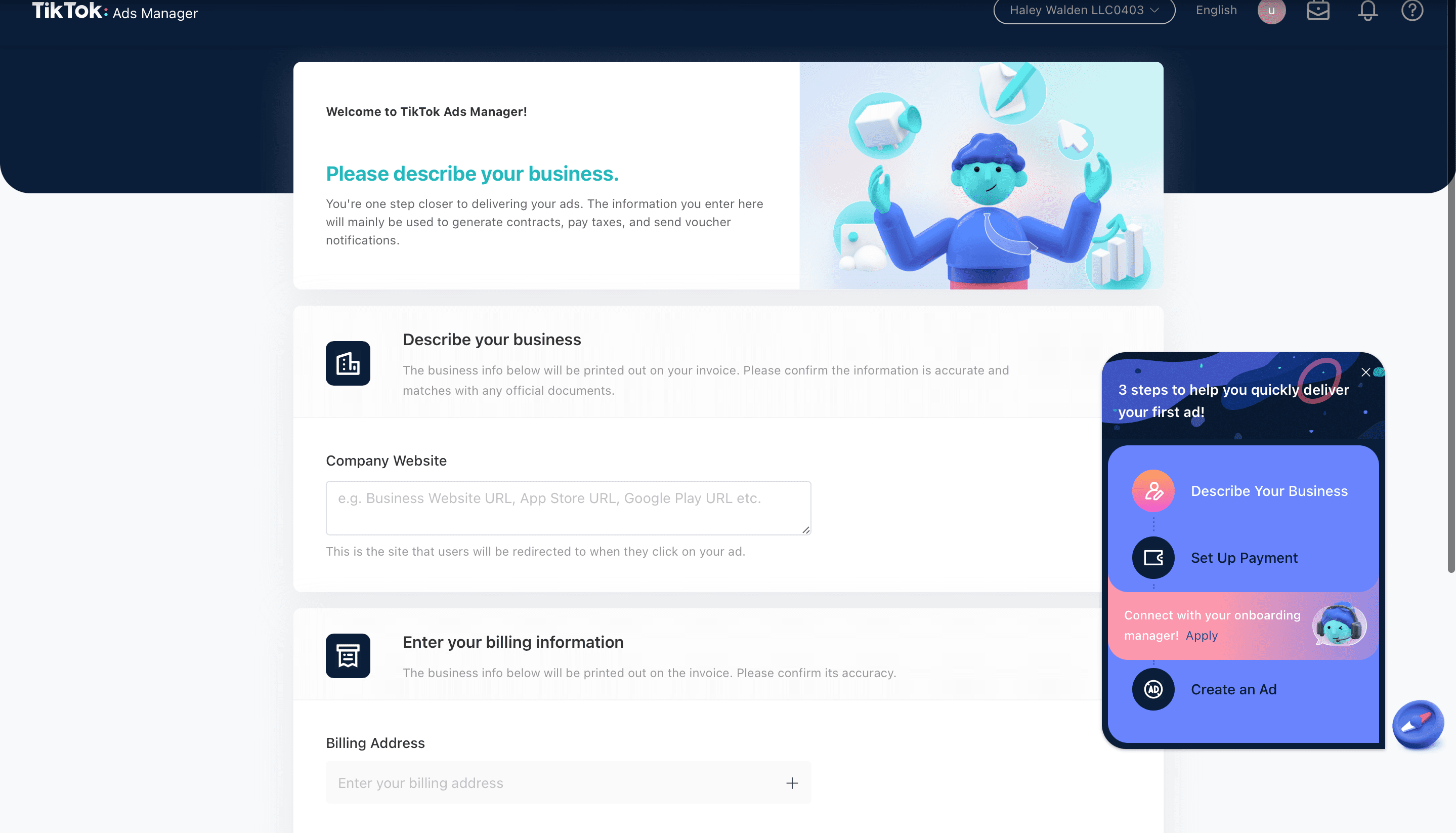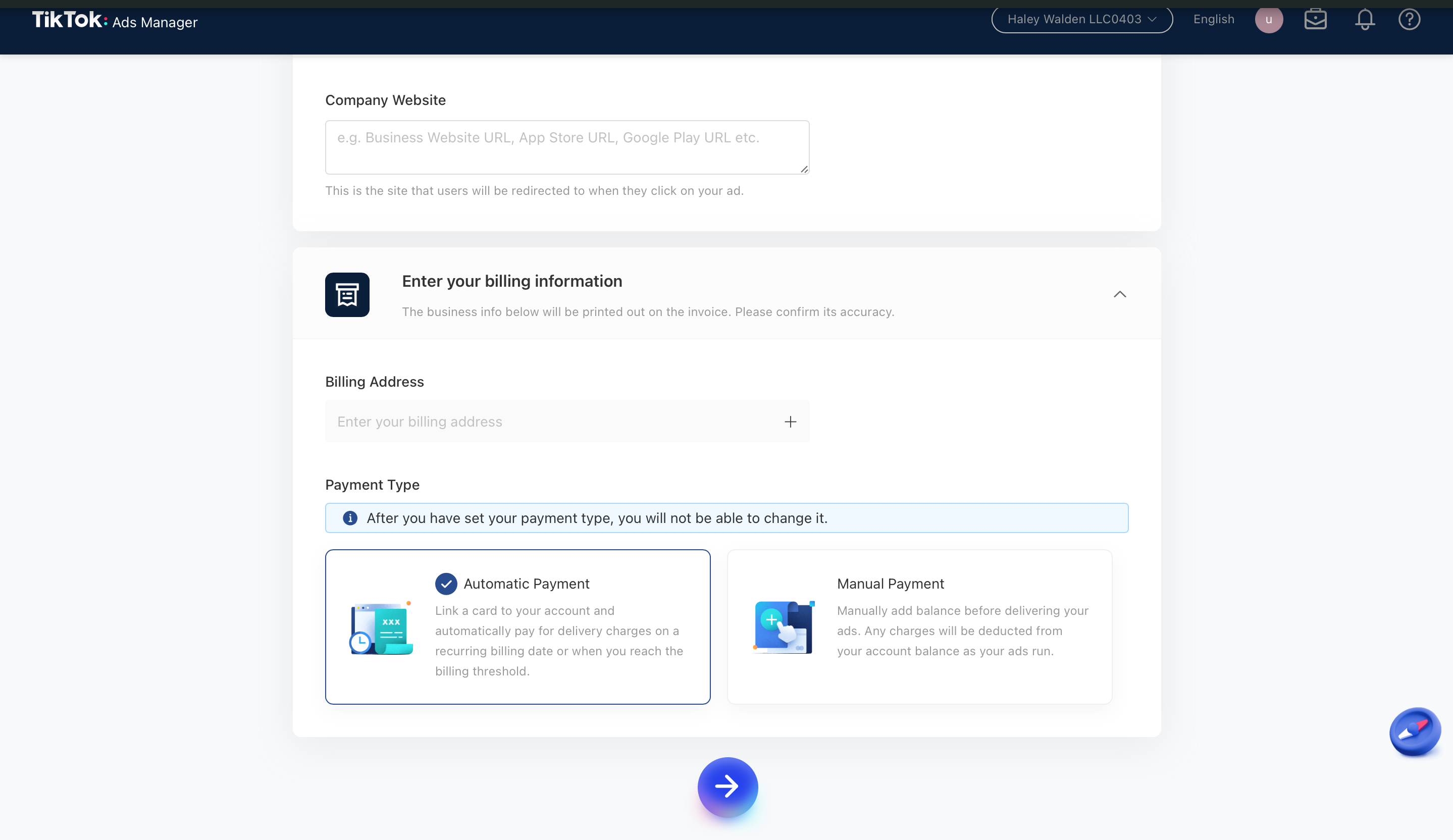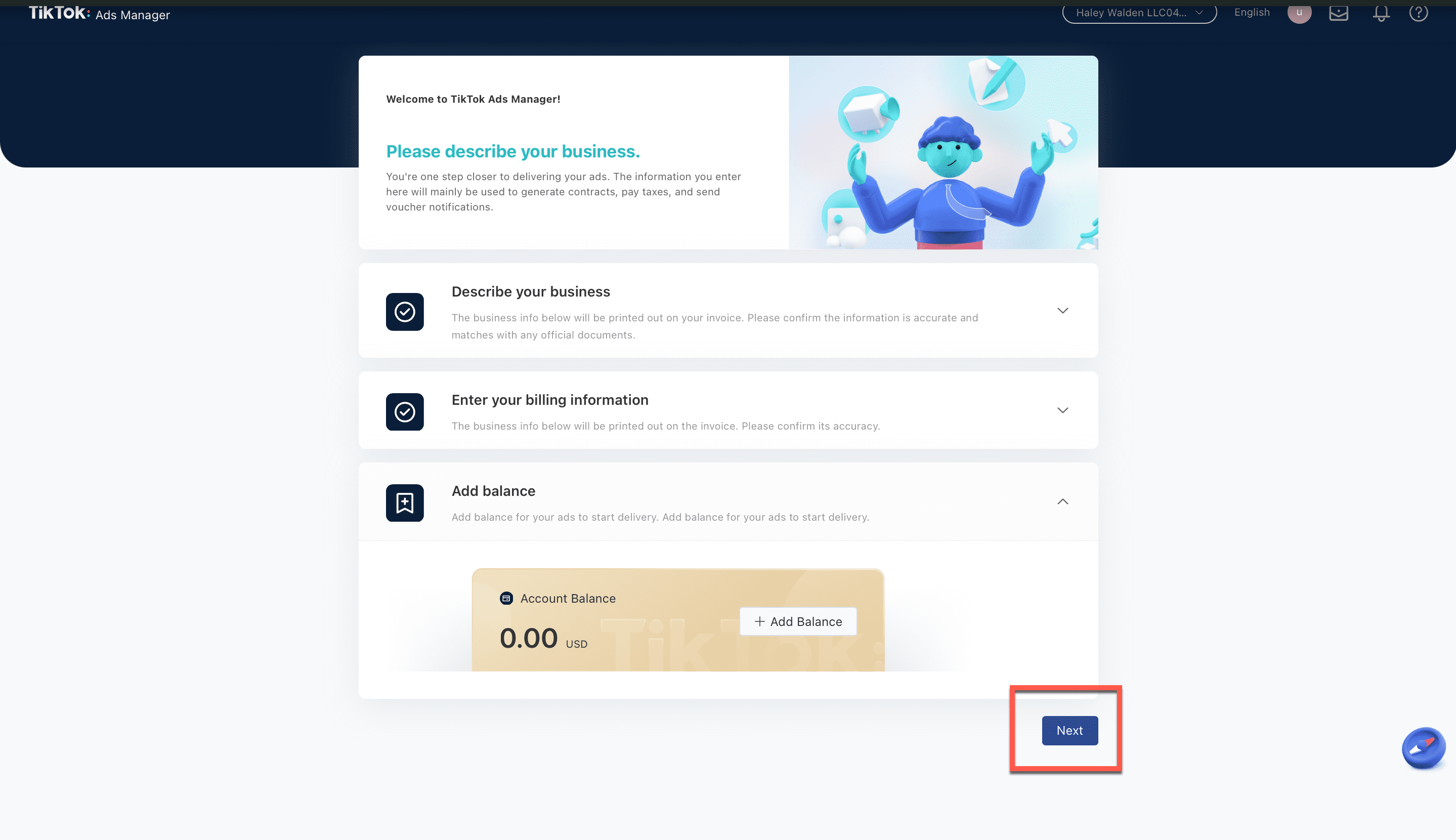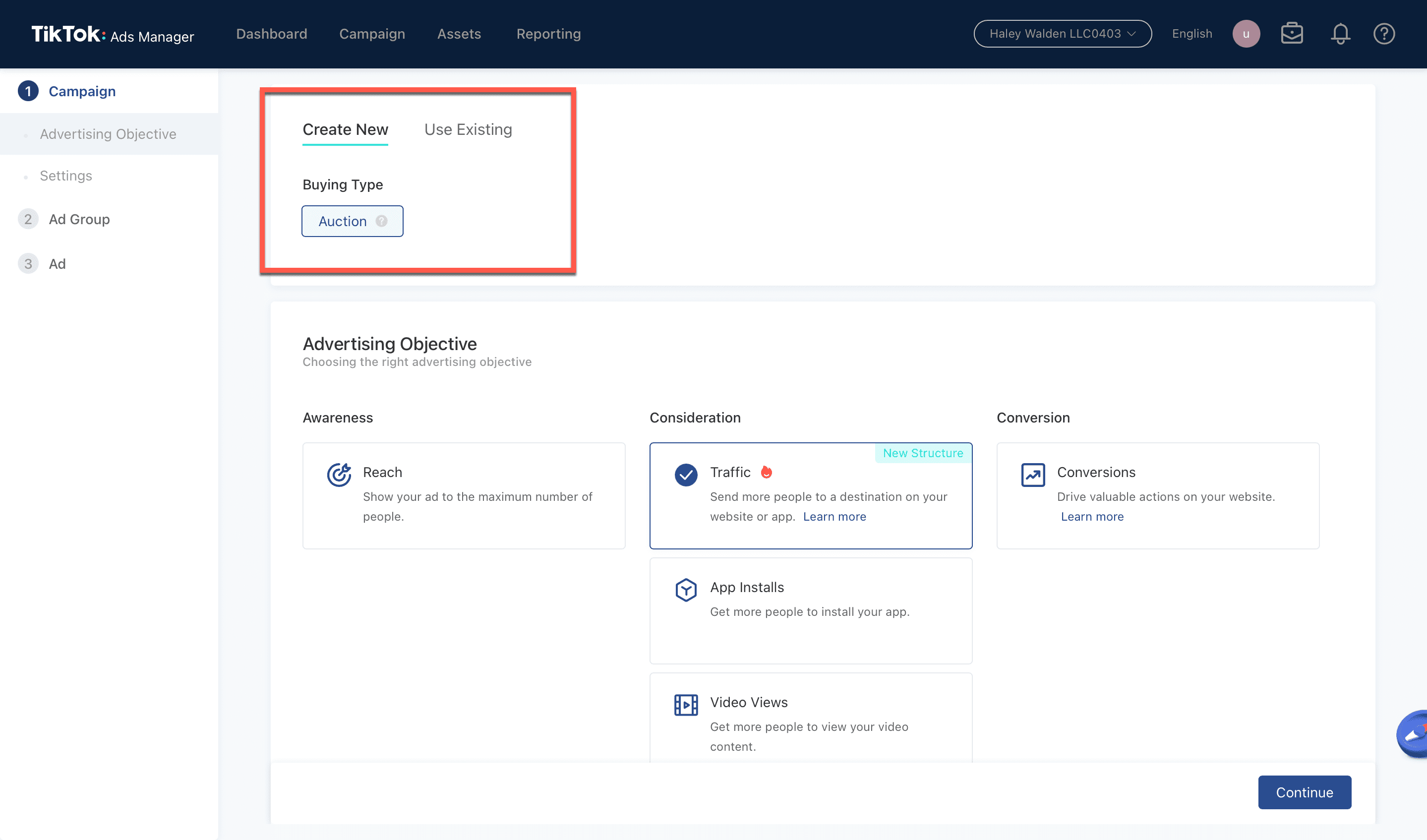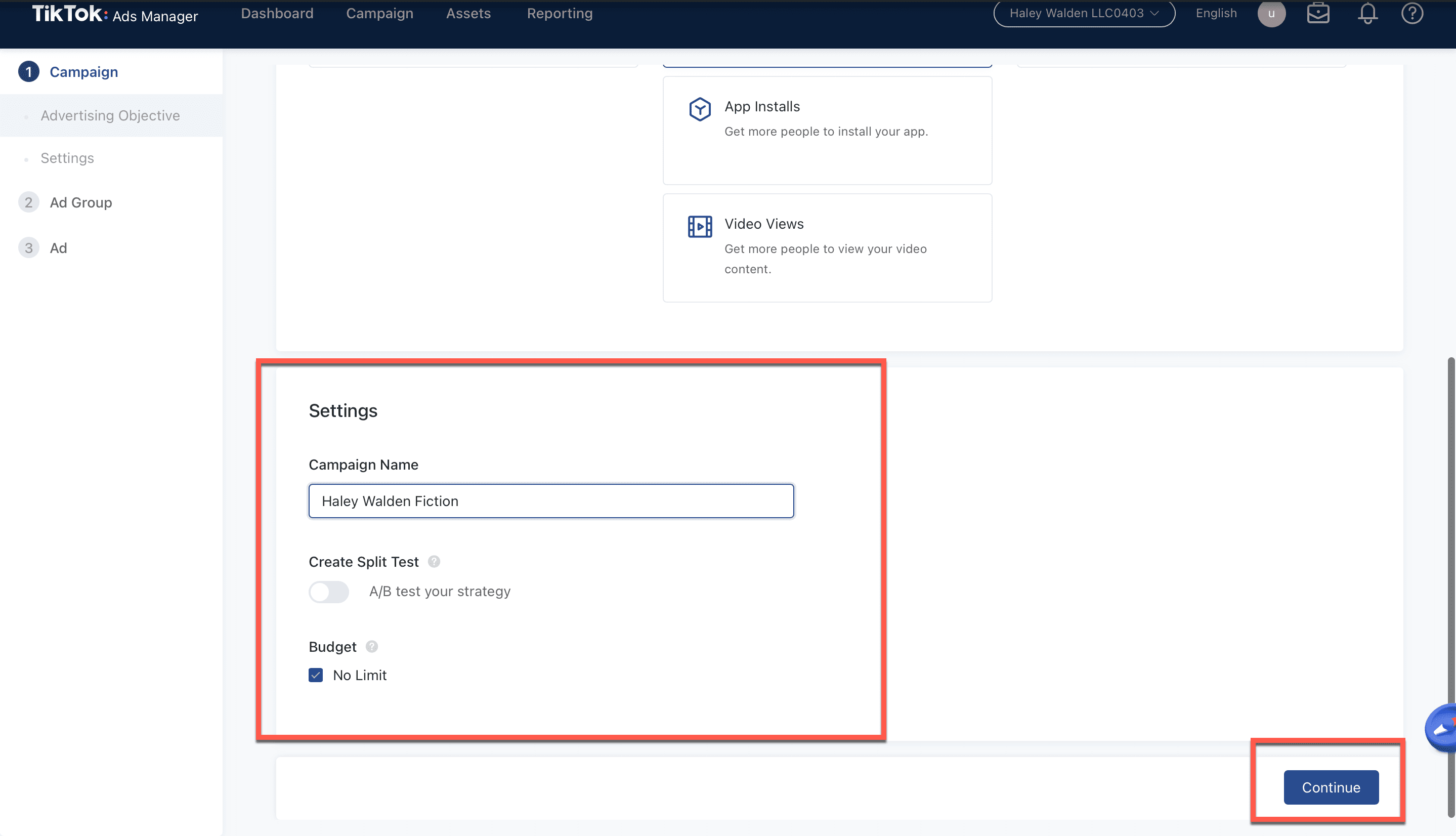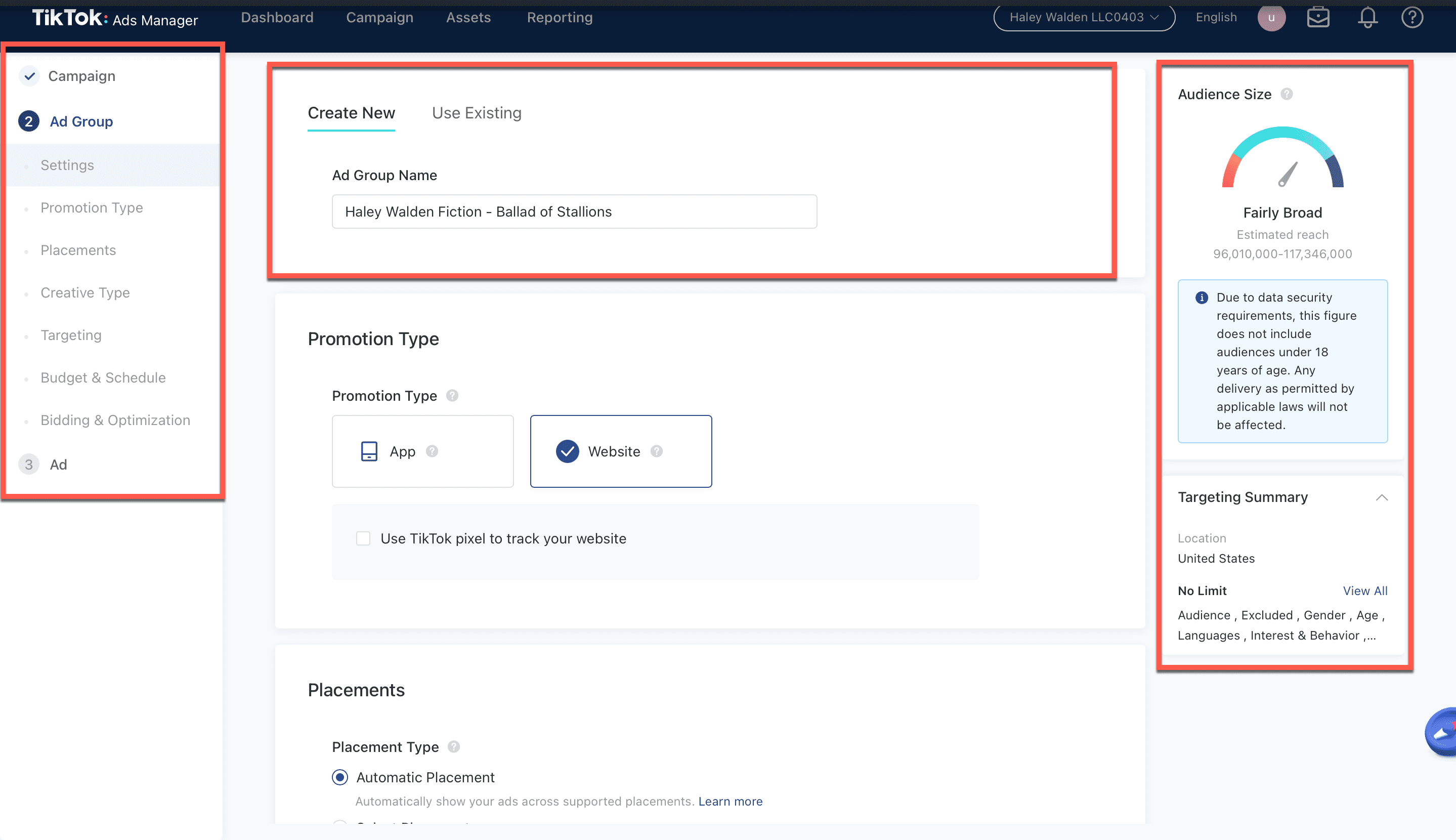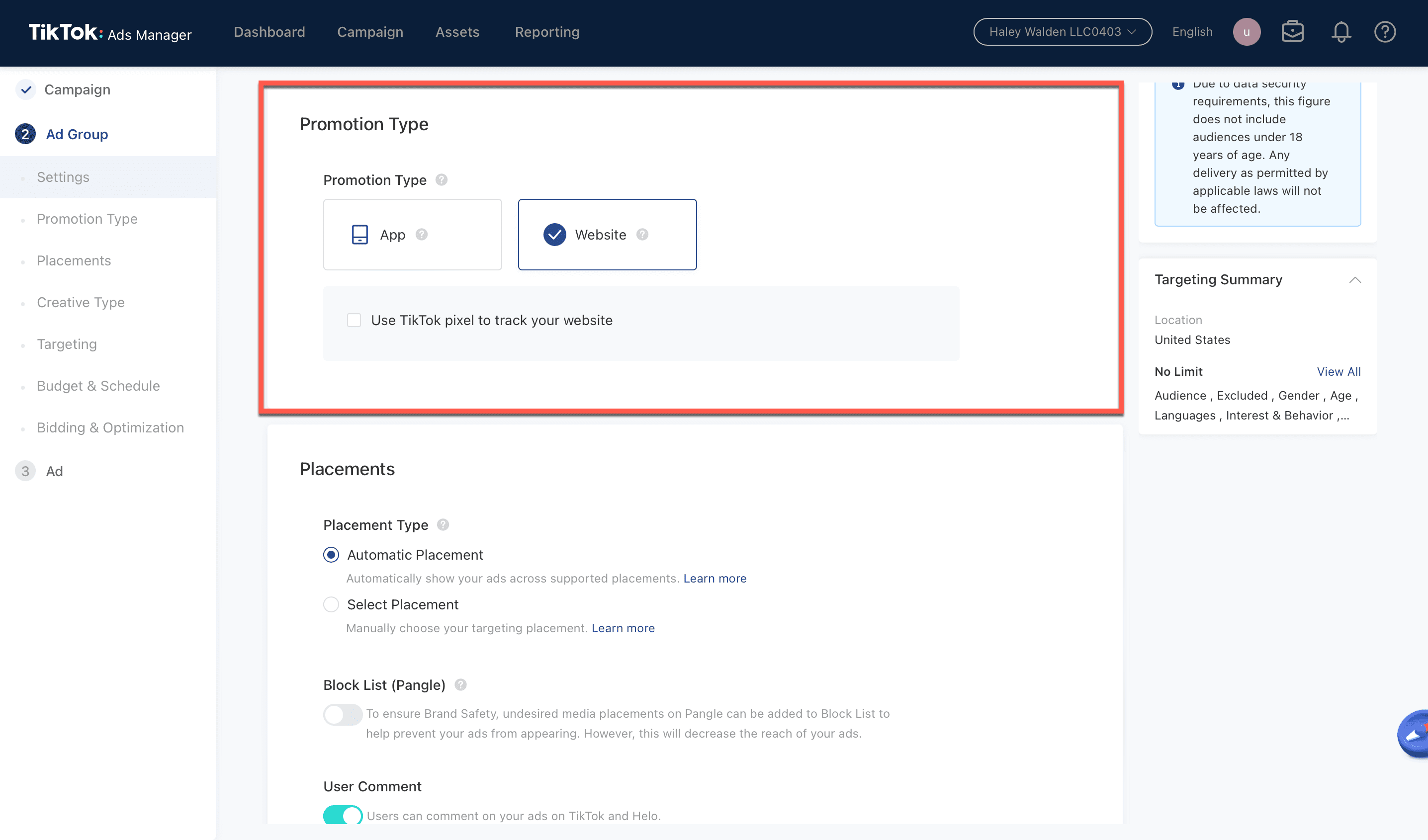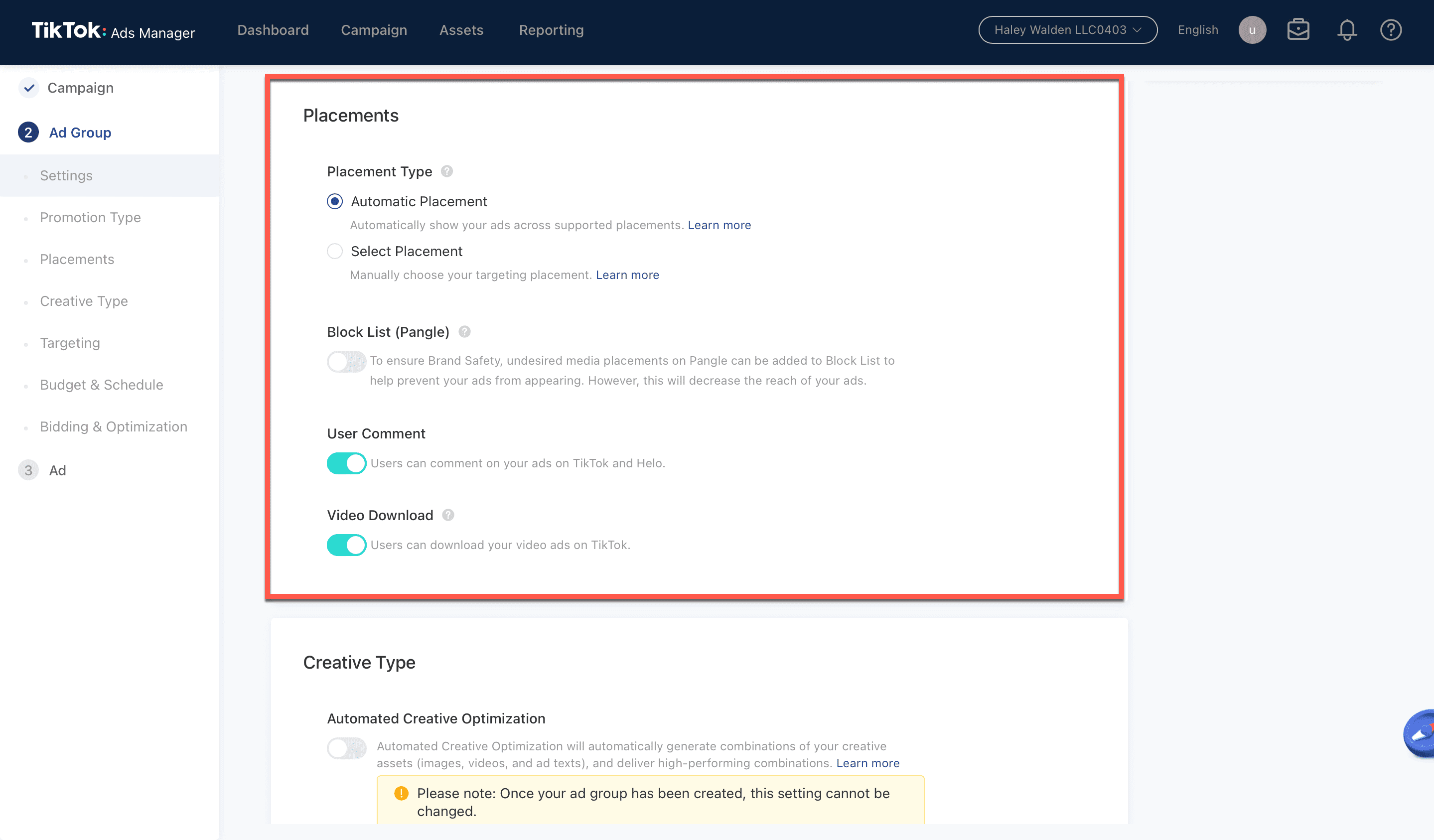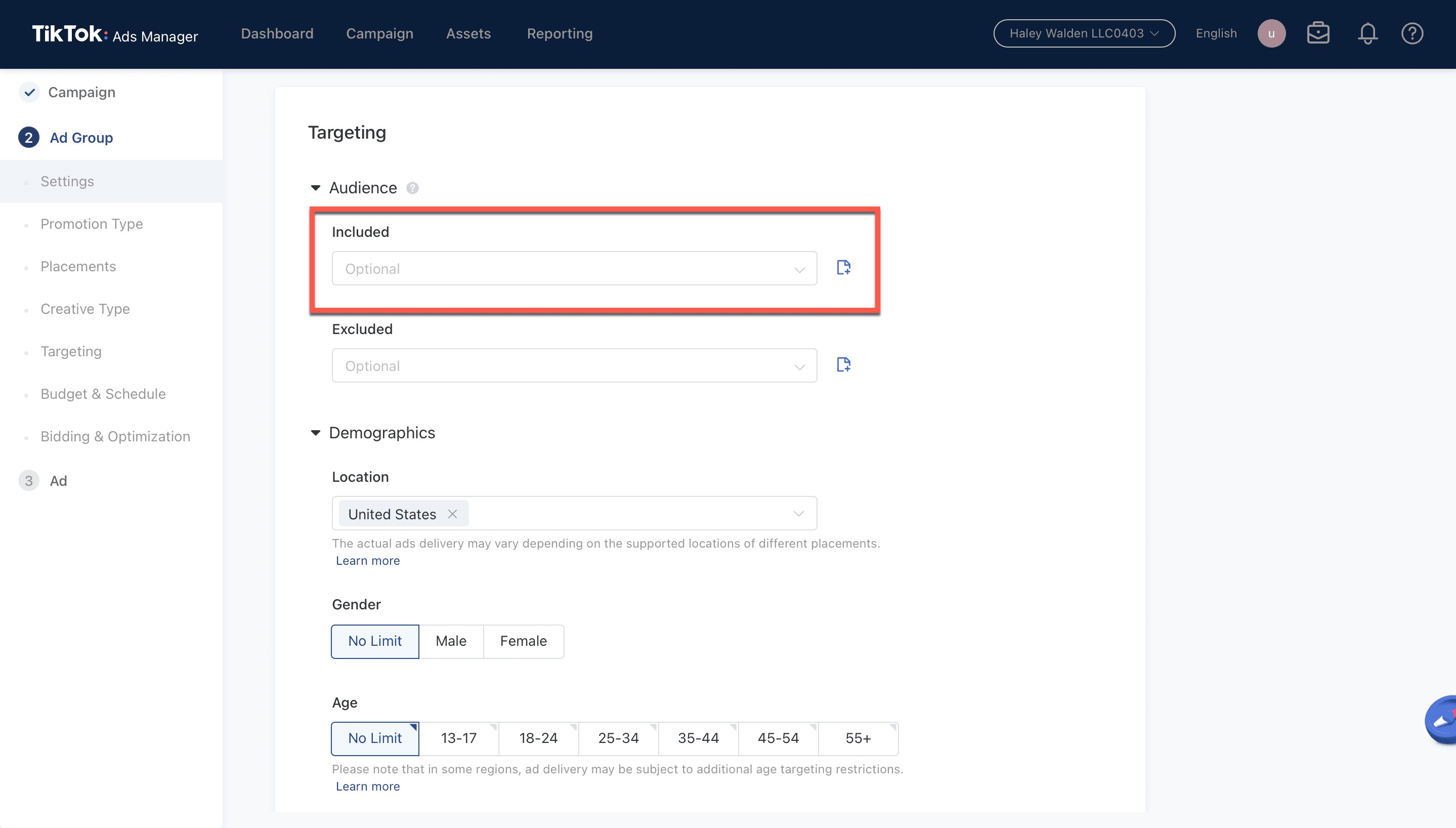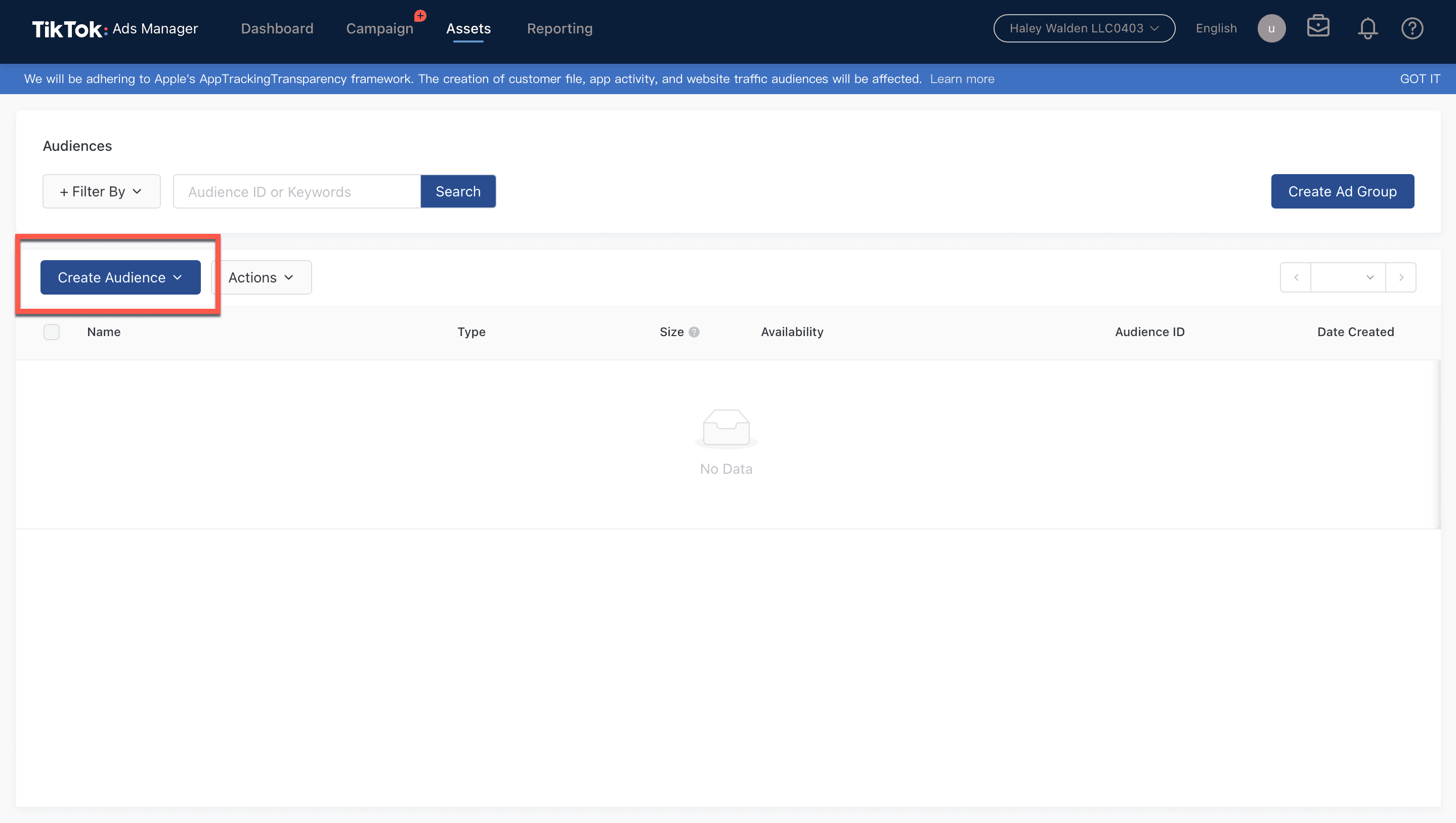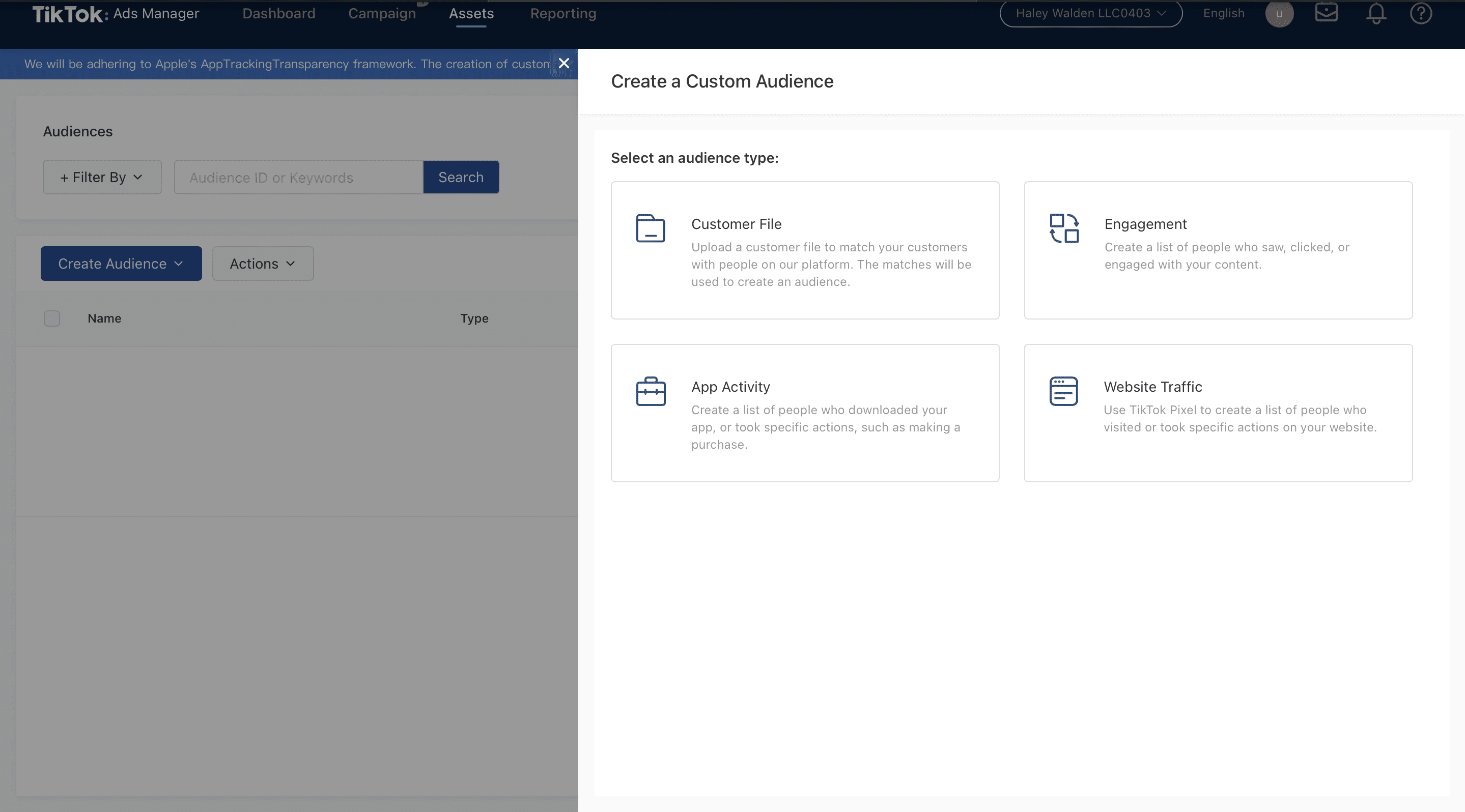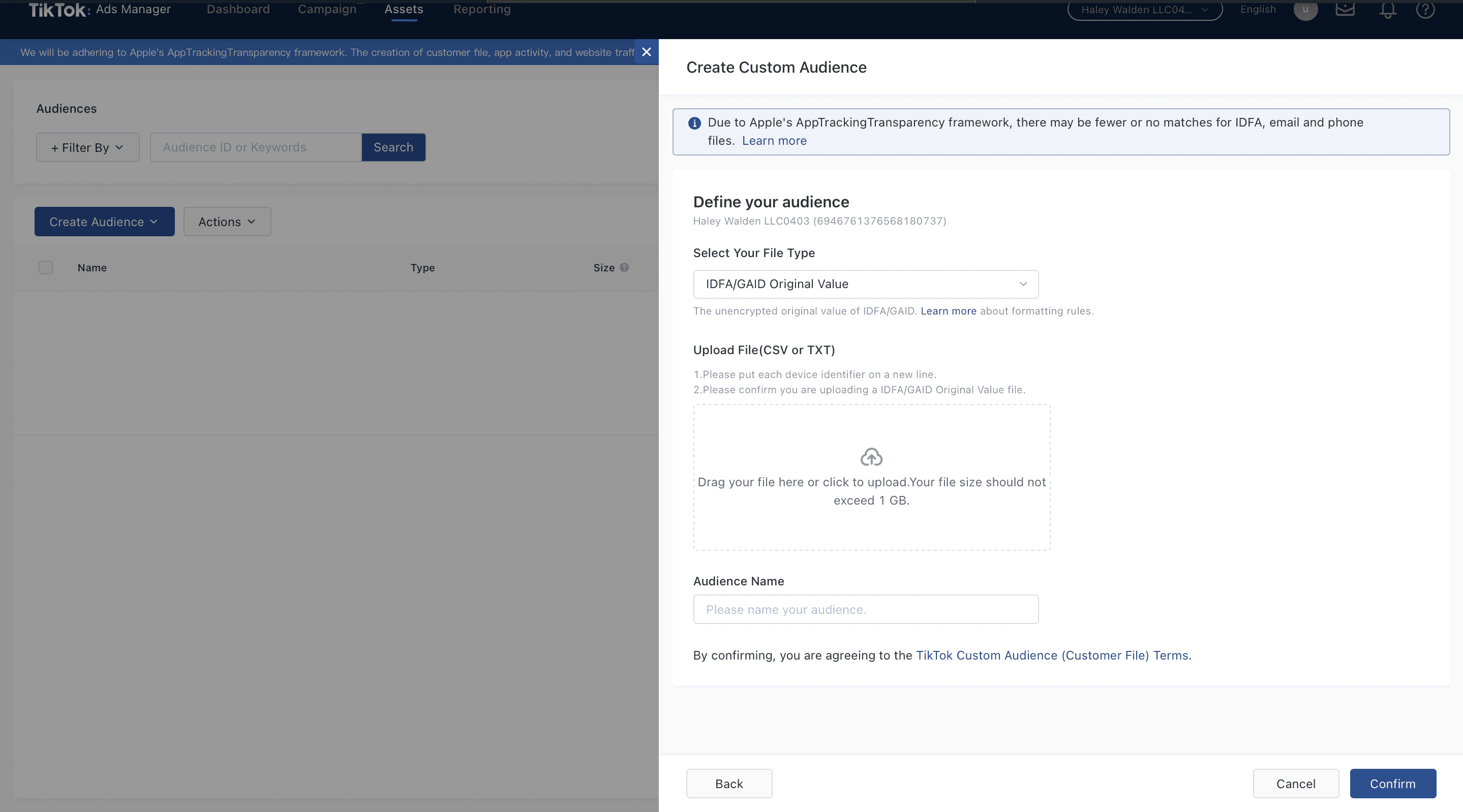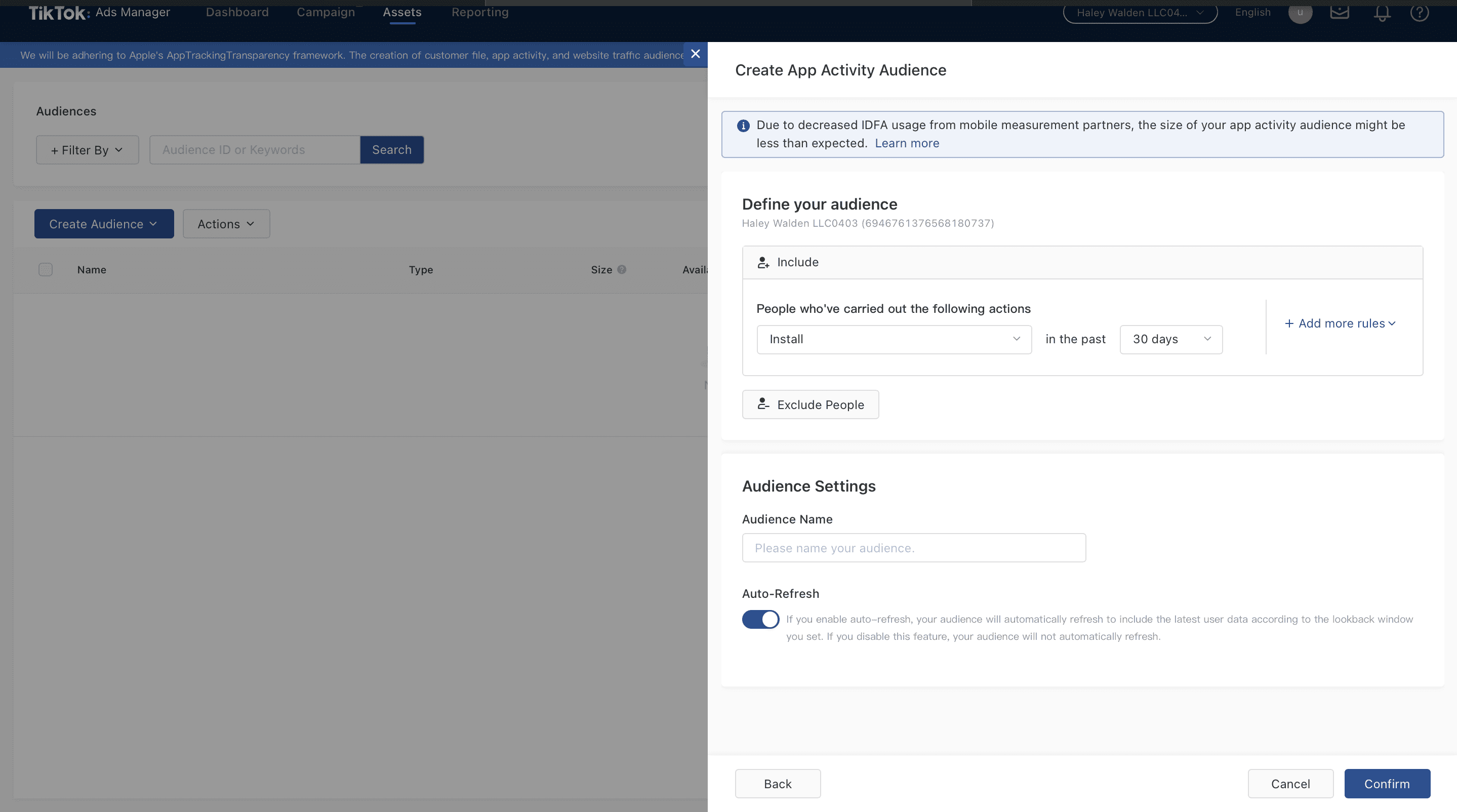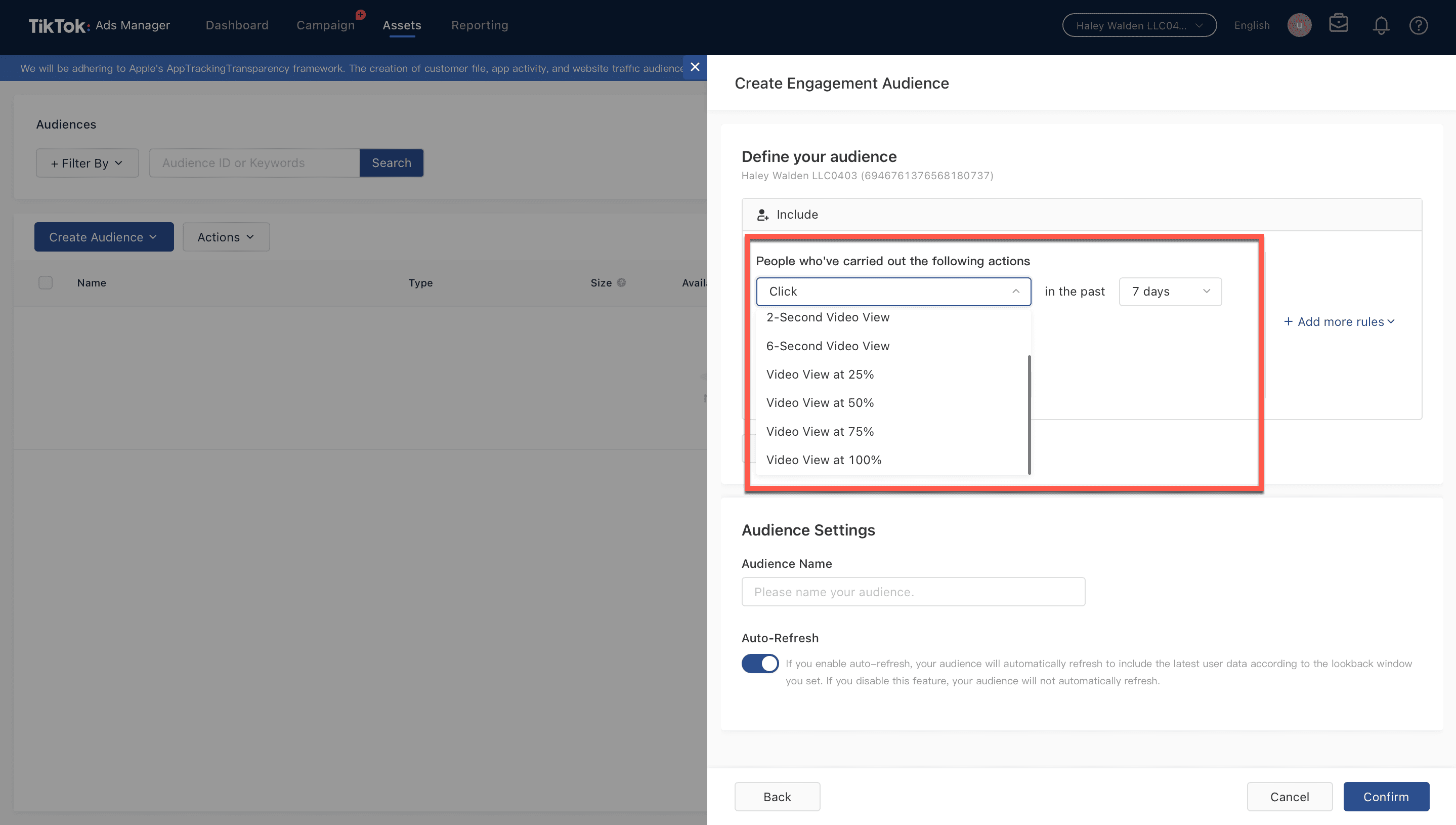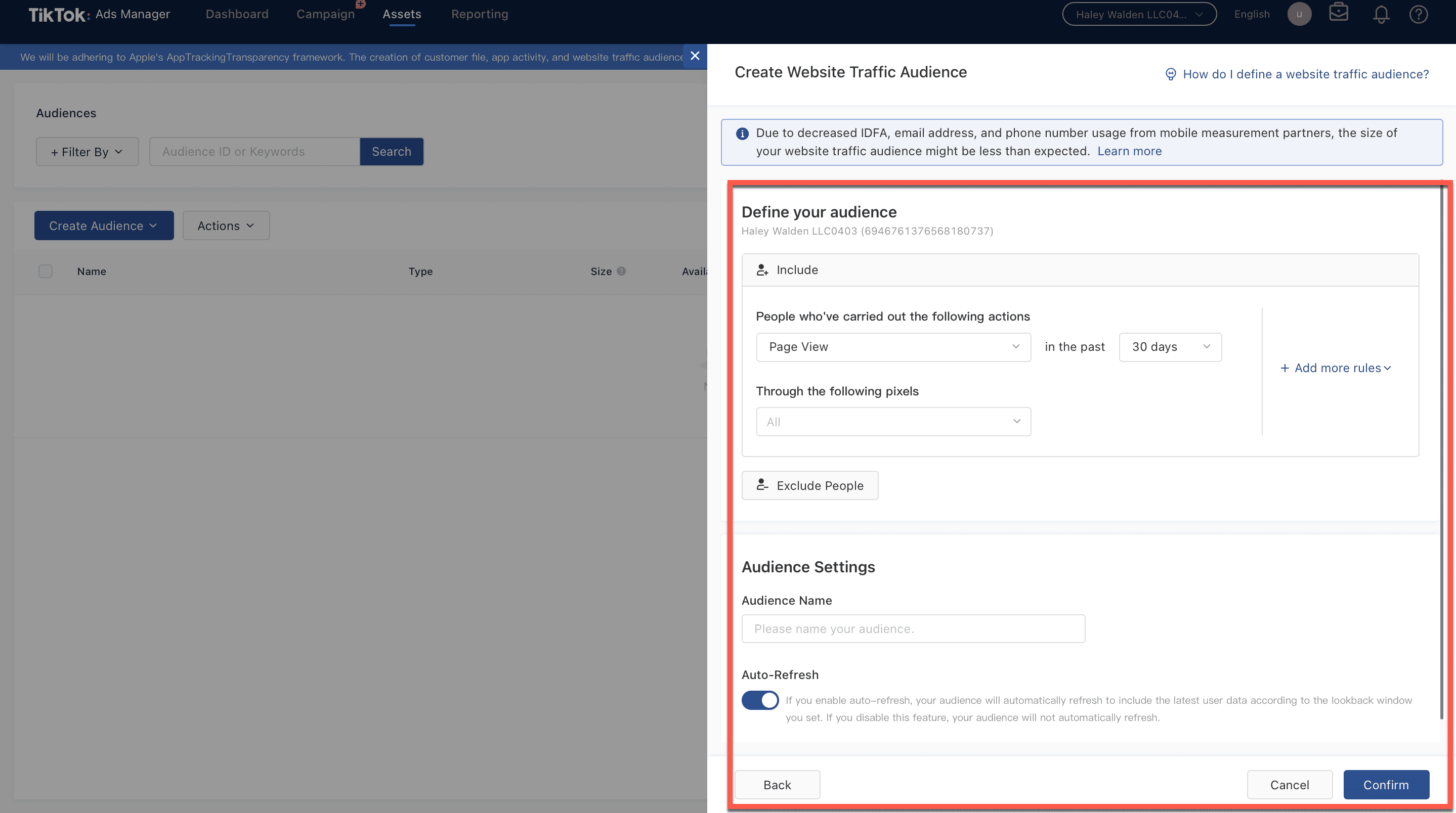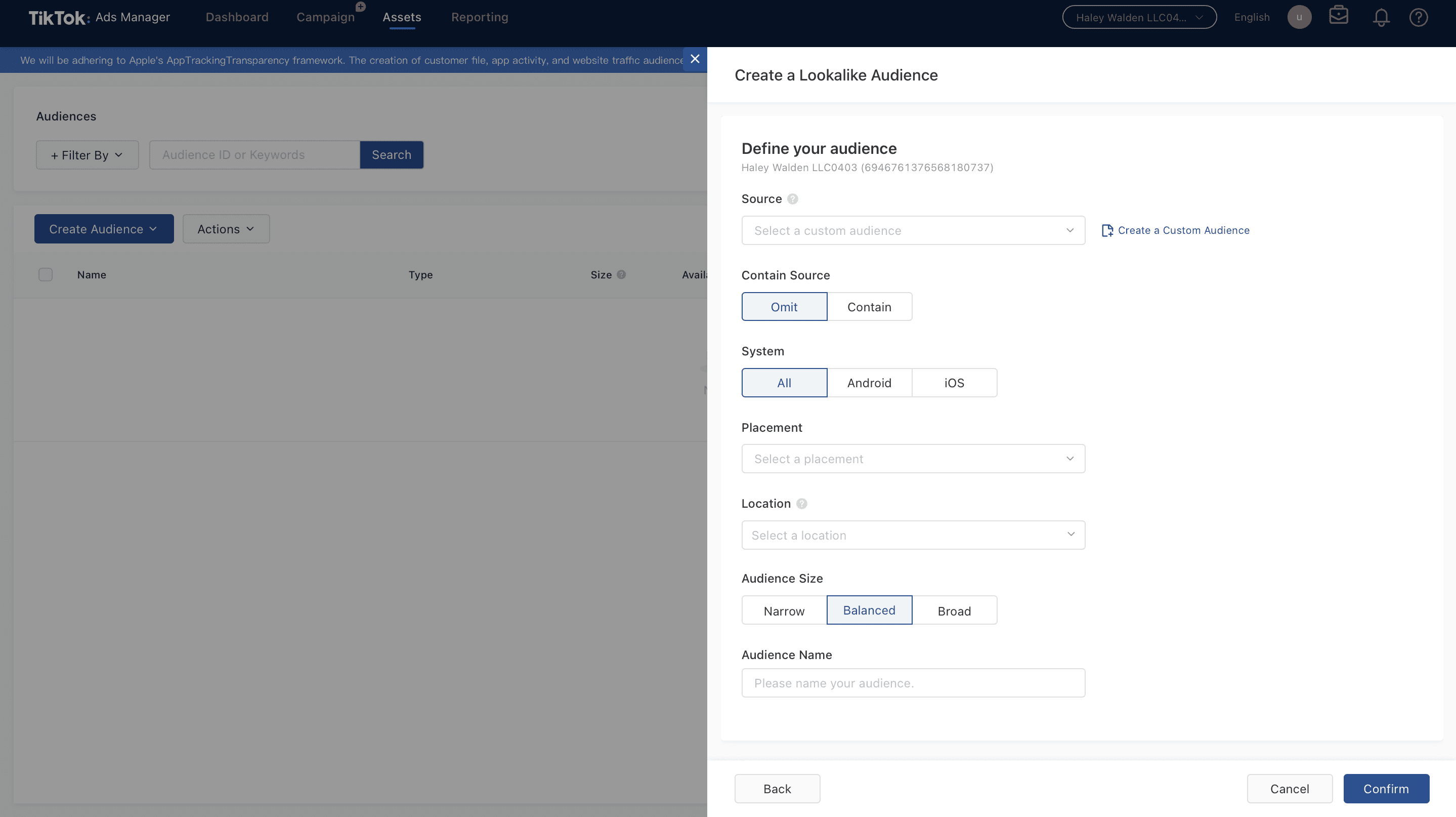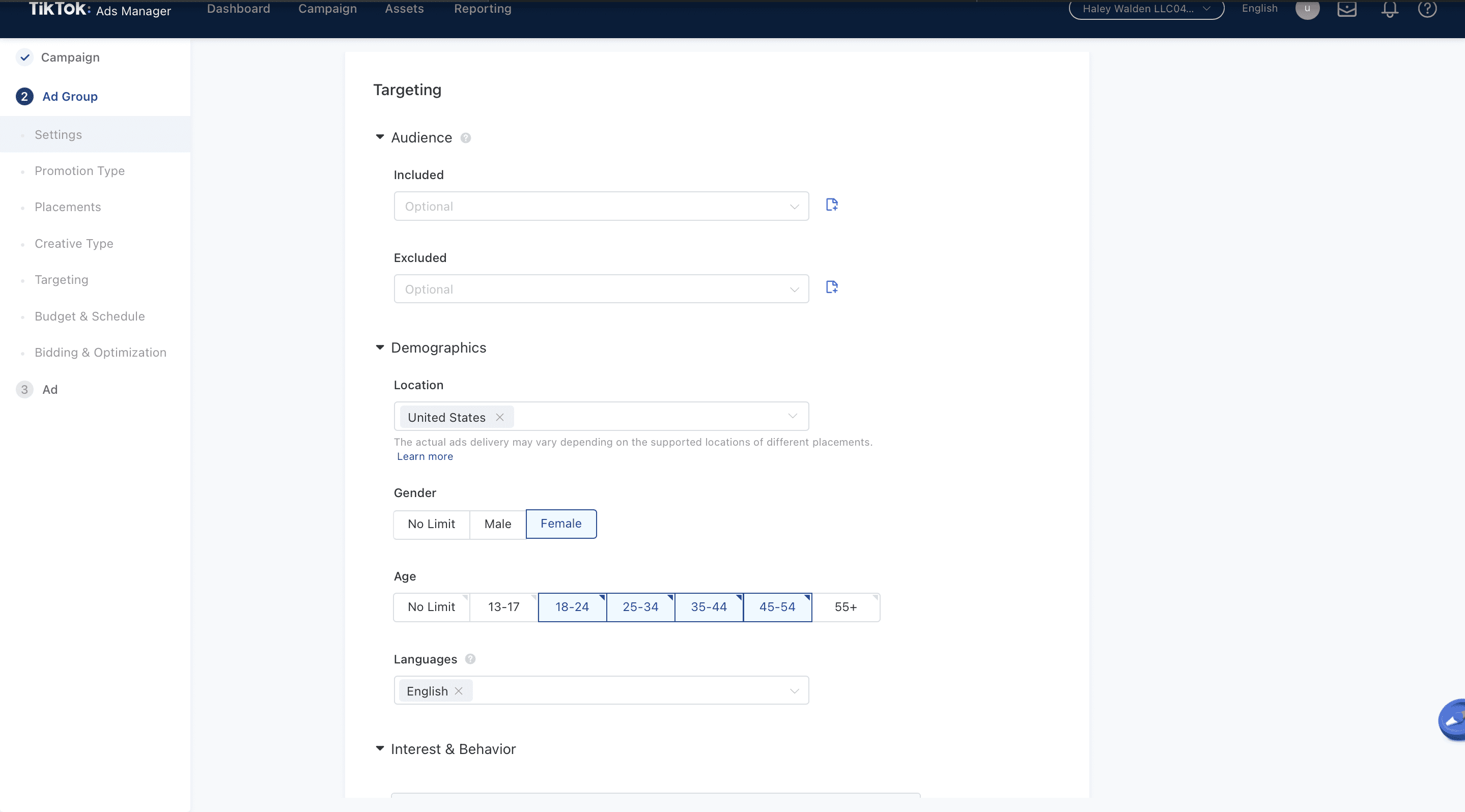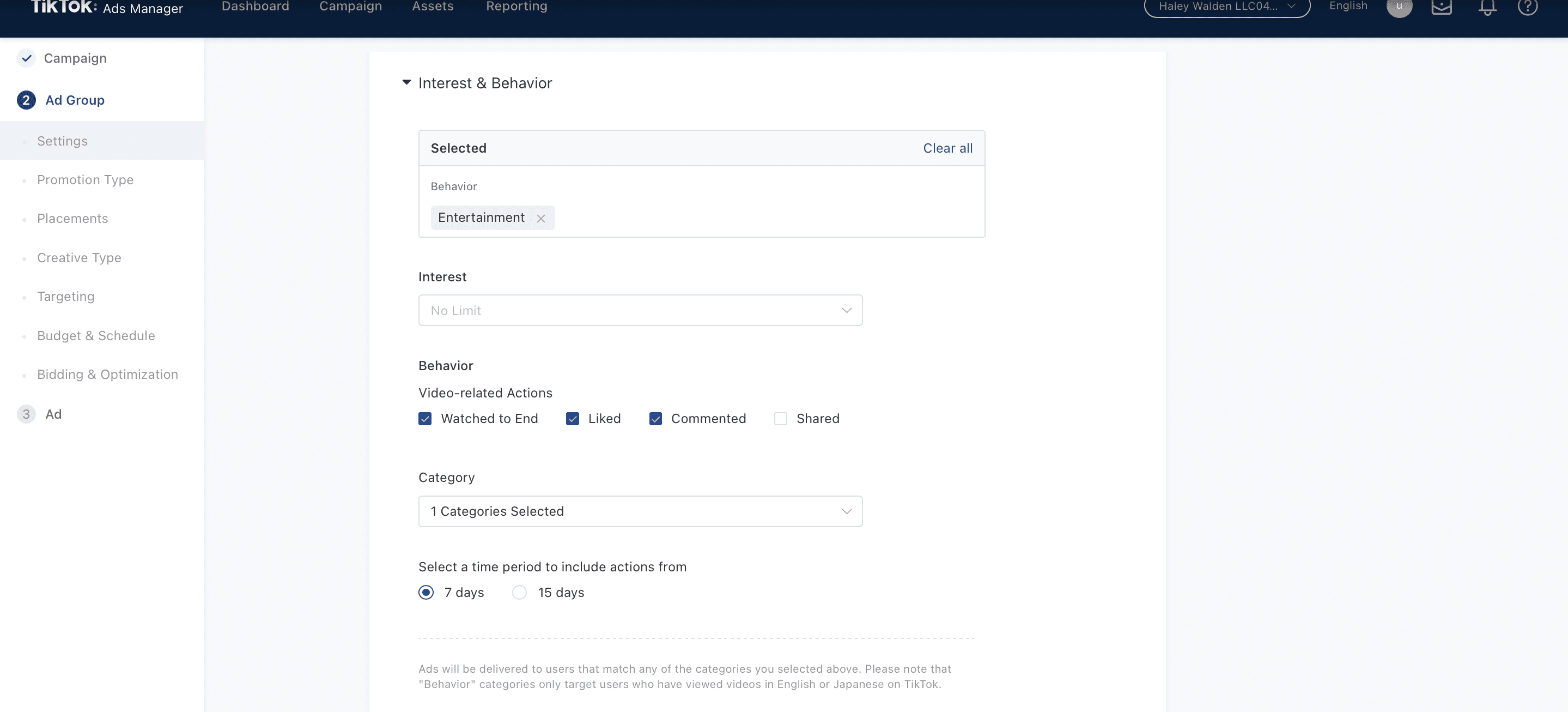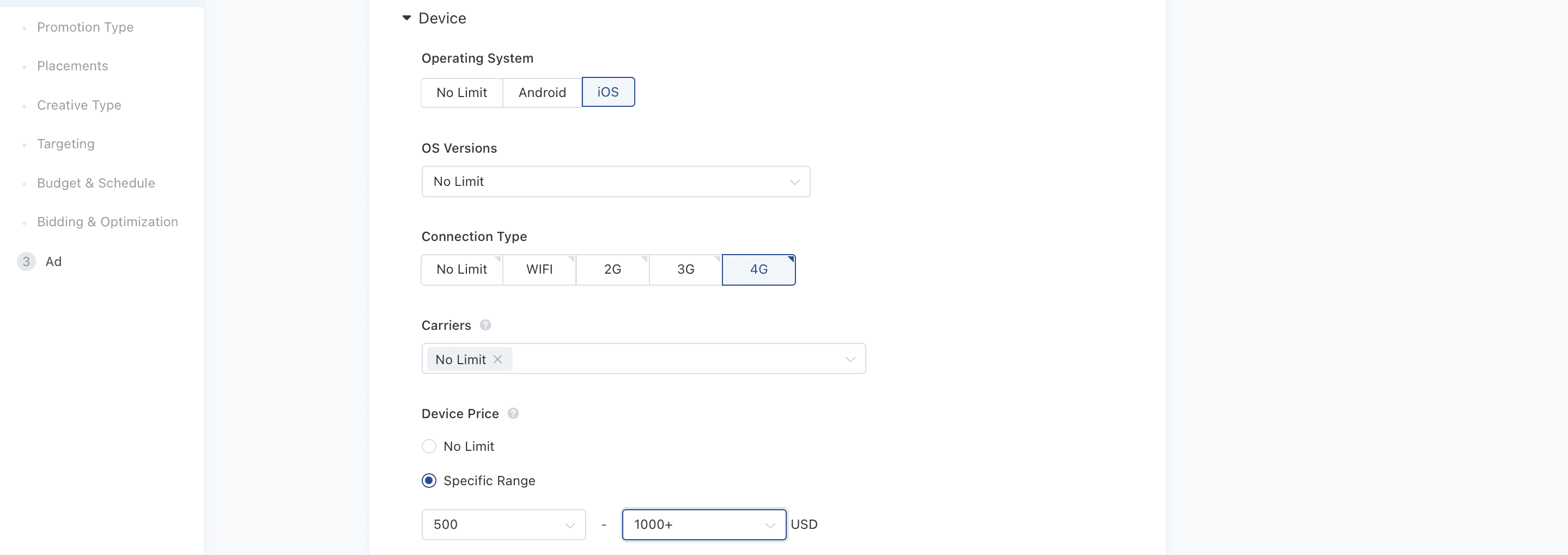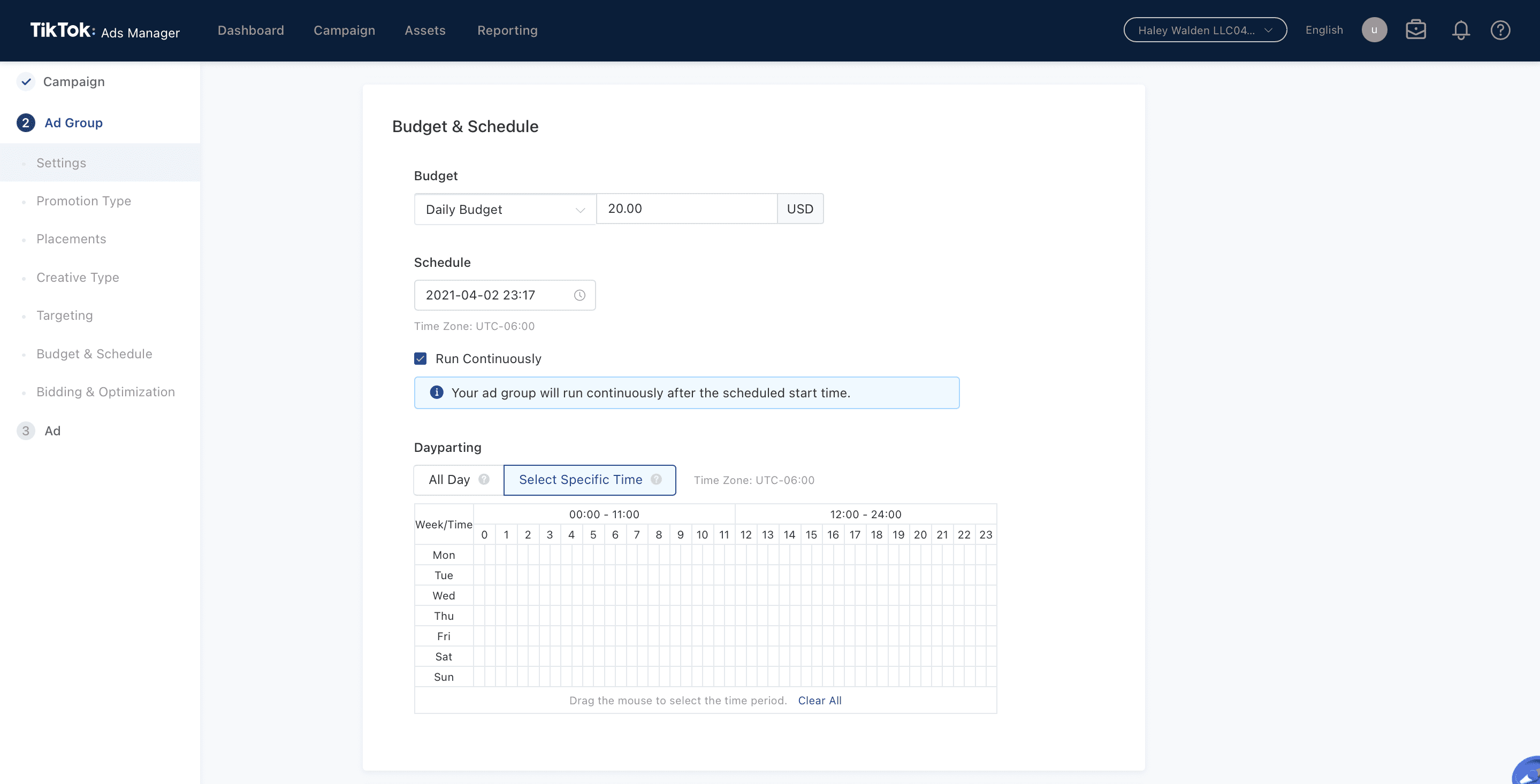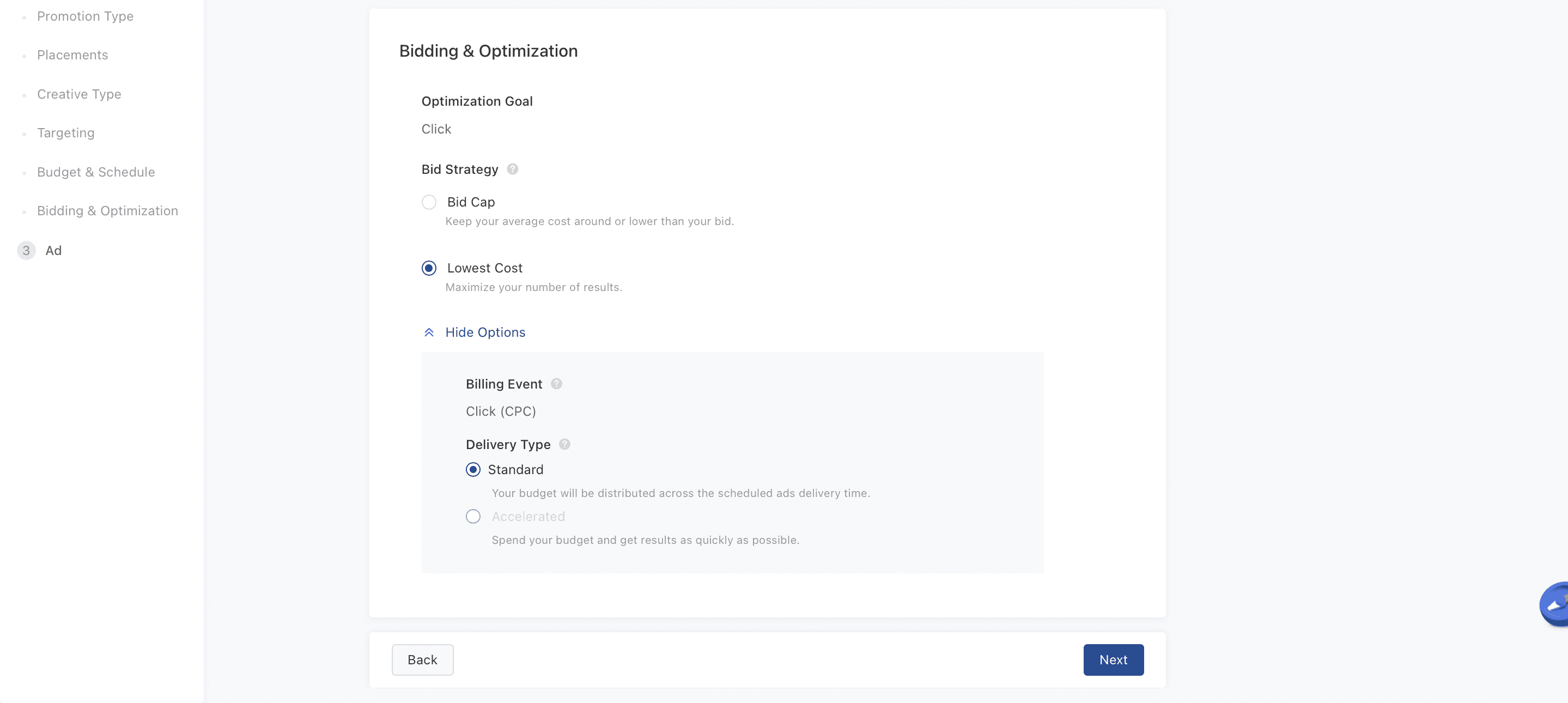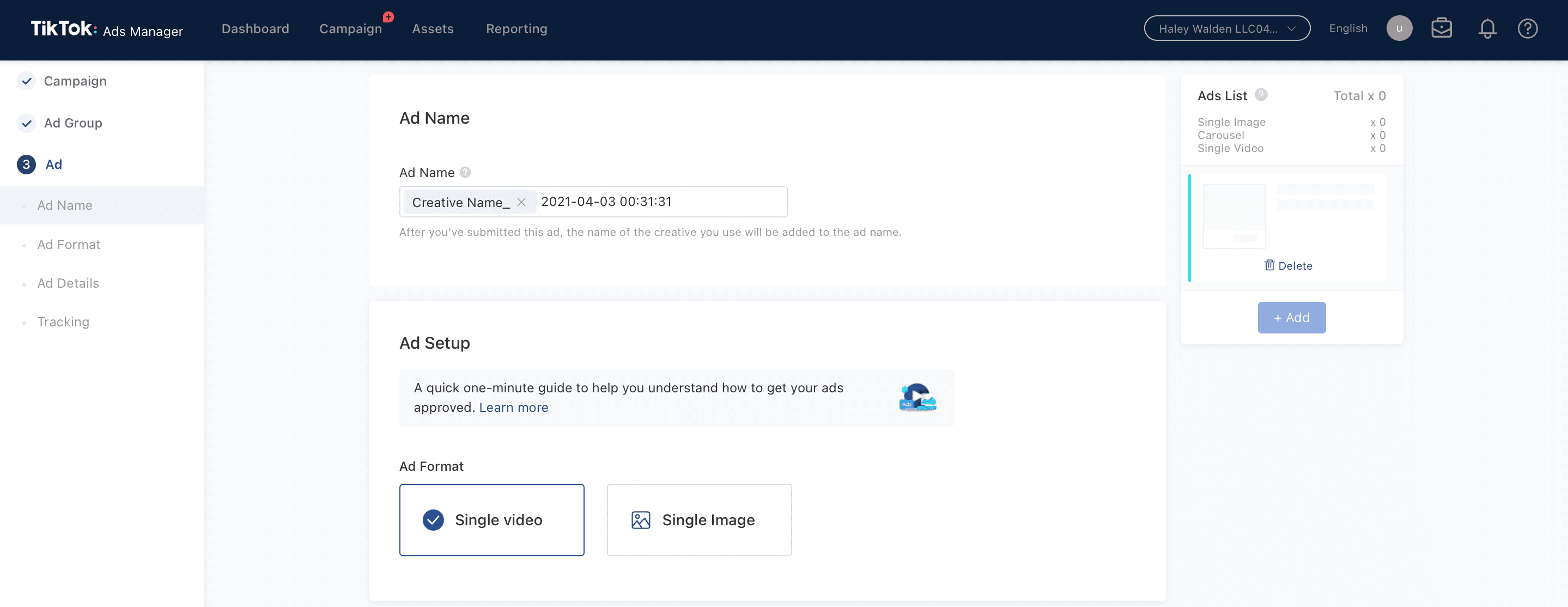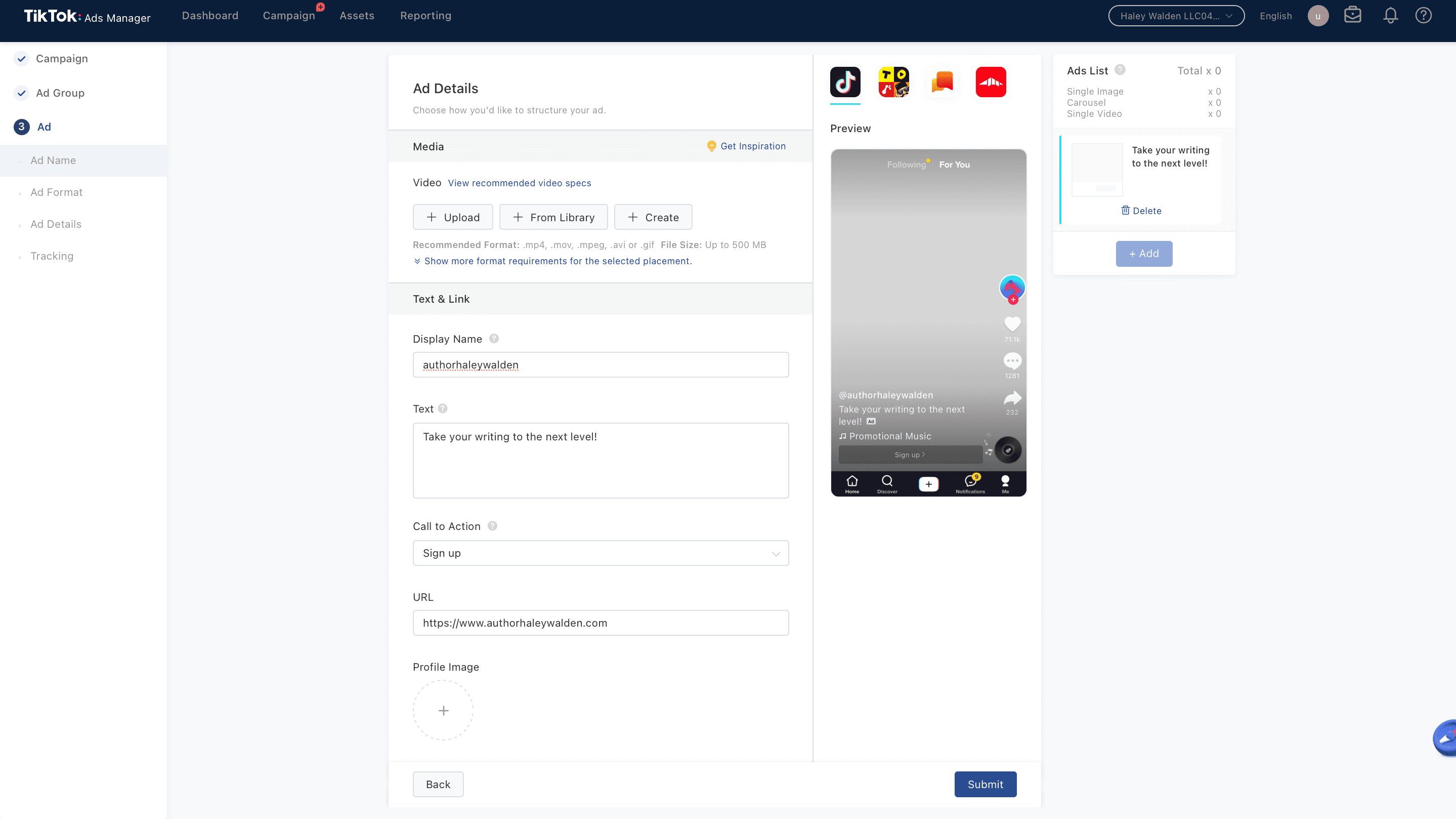[ad_1]
TikTok is an incredibly popular social media platform today. Driven by entertaining, educational vertical video, TikTok boasts highly engaging content, with an equally engaged audience. With 800 million active monthly users and more than 2 billion downloads in the App Store and Google Play, a successful TikTok advertising campaign could stand to raise your brand awareness significantly.
If you’re a brand looking to grow your young Millennial and Gen Z audiences, in particular, TikTok is a great place to advertise. If you’re wondering about the basics of starting your first TikTok advertising campaign, then read on.
Creating Your First TikTok Advertising Campaign
Now, it’s time to create your first TikTok advertising campaign. If you haven’t already, you’ll need to set up your TikTok Ads account. You can do that here. From there, you’ll start the process of creating and publishing your ad.
1. On the TikTok Ads homepage, click Log In. Enter your credentials to access your account.
You can choose to login via your phone number or email address. If you haven’t yet created an account, you can click Sign Up Now.
2. Next, fill out your account credentials to get signed up. Click Register when you’re ready.
3. Next, you’ll get an onboarding message from the one-on-one onboarding manager. You’ll get support with creating your first TikTok advertising campaign, optimizing your ads for the best possible performance, learning the best practices for your TikTok ads, and how to monitor your ad insights for the best possible ROI.
TikTok will want to review your account before you are cleared to run a paid campaign. Once that’s cleared, you can schedule an appointment to speak with an onboarding manager from the platform.
4. Next, you will be asked to describe your business inside TikTok’s Ad Manager. First, describe your business by adding the URL to your business website. Next, enter your billing information.
5. Now, you’ll need to enter your payment and billing information. This information includes your mailing address, and the platform will ask you whether you’re an ad agency. You’ll also need to choose between manual and automatic payments.
6. Once you’ve entered your information and decided how you want to pay, then you’ll see a balance of $0. You can choose to add money to this balance now, or after you’ve created your ad. Click Next to continue.
Keep in mind that your TikTok advertising campaign will not run until you have added a balance in order to pay for your ads. You can still skip the step and come back later, if you’d like to set up your ad campaign first.
TikTok Advertising Objectives
7. Now, it’s time to determine your advertising objectives. Under Create New Campaign, you’ll see that your buying type is Auction. When you put your ads in an auction through TikTok advertising, you can choose a strategy for bidding that will help you to meet the objectives of your campaign. This goal could be efficient budget spend, or controlling the cost per result on your campaign
8. It’s time to choose your advertising objective. TikTok Ads Manager offers three categories of objectives: Awareness, Consideration, and Conversion. Here’s what those objectives mean:
Reach is the objective under Awareness. This means that your ad will be shown to the most people possible throughout the campaign.
Under Consideration, you can choose Traffic, App Installs or Video Views. Choosing Traffic as your objective means that you want your ad to drive people to your website or to an app. If your objective is app installs That means you want people to click to install an app that you’re offering directly from the TikTok platform. If your objective is Video Views, that means you want more people viewing your video content.
Under the Conversion column, the Conversion objective means that you want more people to take action on your website.
Go ahead and choose the objective that works best for your campaign, then scroll down the page.
9. Now it’s time to choose a name for your ad campaign. Pick a name that makes sense for your campaign, and that will be easy for you to identify if you need to make changes.
Once you’ve named your campaign, you can choose whether you want to create a split test for your ad. You can also decide whether you’d like to limit the available budget for your ad spend. Click Continue to move on to the next step.
TikTok Ad Group Information
10. The next thing you’ll want to do is enter all the information for your ad group. At the top, you’ll see that you’re creating a new ad, group. Name your ad group.
On the left-hand side of the screen, you will see a navigation menu that will help you navigate through each section of the ad creation page. On the right side of the page, you’ll see an audience size indicator, and a targeting summary. These widgets will show you how your audience will be adjusted as you tweak the objectives of your campaign, including demographics and reach.
11. Once you’ve named your ad group, it’s time to choose what type of promotion you’re going to be running. Choose to drive your audience to install your app, or you can drive your audience to view your website. You can also decide whether or not to use a TikTok pixel in order to track conversions and visits to your site.
12. Now, select your placements. You can choose between having your ad automatically placed or selecting your ad placement manually.
It’s possible to apply a blocked users list to your ads, which will prevent your ad from appearing in certain places, or before certain audiences. This will ultimately decrease your ad’s reach, but it could protect your brand from unwanted engagement. You can decide whether you want users to be able to comment on your ad, and whether or not you want to allow users to download your video to their mobile device.
13. Select your creative type. This step features a button you can toggle to turn on Automated Creative Optimization.
If you choose Automated Creative Optimization, that means you’re giving TikTok’s system permission to assemble your ad creative materials into multiple advertising assets for your campaign. Effectively, this option creates several ads out of the few pieces of information that you provide. This saves you time, while allowing your ad to run on TikTok in multiple iterations.
Keep in mind that if you select this option, you cannot reverse it once the campaign has begun to run.
Choosing Your TikTok Advertising Audience
14. Now it’s time to target your audience. You can choose which individuals you might like to include or exclude from seeing your ad, their location, gender, and age range.
15. If you haven’t already created an audience that you can include, then TikTok Ads Manager will take you to a separate window where you can create your audience.
16. To get started, click the Create Audience button, you’ll see a drop down menu where you can choose a custom audience, or a lookalike.
To create a custom audience, you’ll be given four options:
- Choose to upload a customer file, which can help the Tik Tok ads manager to match an audience on their own platform
- Make a list of people who took specific actions on your app or your website, like downloading something from you, or making a purchase
- Choose people who have engaged with your content in the past
- Use the TikTok pixel to create a list of anyone who took specific actions or visited your website
TikTok Custom Audience Options
If you choose to create a custom audience, you’ll be asked to define and name your audience, then upload a file with audience information.
If you create an audience based on app activity, the Ads Manager will prompt you to define their actions via the app. For example, you can limit the audience to people who took specific actions, such as installing your app, completing a tutorial, or clicking an in-app ad.
For engagement audiences, you’ll define your audience by how they engaged with your brand within a certain time frame. You might want to target people who viewed your video at 50% or 75% within the past seven days, for example.
When you create a website traffic audience, you’ll filter by the specific actions someone took on your website. This could be a page view or form submission within the past 30 days, for example.
For lookalike audiences, you’ll upload an existing custom audience. Then, you’ll define factors such as the source of the audience, operating system, location, and size.
Once you’ve selected your audience, return to the TikTok Ads Manager to complete your TikTok advertising campaign.
Detailed TikTok Audience Demographics
17. Now, it’s time to fill out the rest of your demographic information. In addition to basic demographics, such as age and location, you’ll also have the option to filter by behavior. For example, you can select a category of interest, such as Entertainment, then filter by viewers who watched your video in full, then engaged with it.
You may also filter by device, down to the cost of that device, if you wish.
18. Next, set up your TikTok advertising budget. The platform requires you to run a minimum of $20 ad spend per day, so be sure to enter that. Then, you can schedule when you’d like for your ad to run.
19. The next thing you’ll need to do is setting up bidding on your ad. You can either cap your bid, or have TikTok automatically keep the cost down. Billing is measured at cost per click (CPC). Click Next when you’re ready.
Set Up And Format Your TikTok Advertising
20. Now, it’s time to set up and format your ad. TikTok Ads Manager will take you through a series of steps to enter all the details on the ad campaign. First, name your ad, then decide whether you’ll be using a single video or single image.
21. Fill in your ad details. This information includes your media, display name, text, call to action, URL, and profile image. You’ll see a preview on the right-hand side of the screen.
22. Finally, if you’re going to set up tracking via the TikTok pixel, you can enter that information here. TikTok Ads Manager will ask for your pixel information, as well as your tracking URLs. Click Submit when you’re finished.
Now, it’s time to wait for TikTok to approve your ad. If it isn’t approved, you may need to make some adjustments and resubmit.
TikTok Advertising Formats
There are five major types of TikTok advertising formats. However, there’s only one option available to users who are creating their own ads without the guidance of a representative from TikTok: In-Feed Video Ads.
In-Feed Video Ads are placed either at the bottom of organic videos, or in the feed as part of the queue. Their purpose is to redirect users to a website or app, and they’re the only type of ad available to self-service advertising customers. These ads cost an average of $10 cost per impression (CPM) and have a minimum of $500 campaign spend. For every other type of ad, a heftier budget and an ad account with a representative is required.
TikTok advertising campaigns can run anywhere from $50,000 to $120,000 for the other ad formats. If you have a larger corporate budget to work with, other TikTok advertising options include:
- Branded Hashtag Challenge, in which you’ll partner with TikTok’s marketing team to create a sponsored hashtag and a “challenge” trend others can participate in by creating their own content. It’s at or near the top of the Discovery page, and includes a shoppable component for retailers.
- Brand Takeover, a 3-5 second video ad that appears immediately after a user opens the app. This ad shows up in the For You feed and redirects to a link. Only one advertiser per day can select this option.
- Top View Ads, which display on the full screen and are similar to brand takeovers. These ads are 60 seconds long and start later on in a user’s session, rather than at startup.
- Branded Effects appear for 10 days and include augmented reality (AR) filters, lenses users can add to their videos, and custom stickers.
TikTok Advertising Trends for 2021
Want to make the most of TikTok advertising trends in 2021? Influencer Marketing Hub has some useful tips and trends you can leverage for your ad campaigns.
- Keep your videos casual. These days, more users are spending time on TikTok. Videos that don’t feel over-produced are rising in popularity. In particular, home fitness, how-to, and educational videos are becoming more popular with viewers.
- Duet with fans. TikTok Duets are a popular feature of the app. A Duet allows users to create a side-by-side video with someone else’s existing video. Brands can use this as a challenge, Dueting videos made by fans and potentially leading to high engagement.
- Encourage user-generated content (UGC). UGC is increasingly important to marketers and brands looking to create a high volume of consistent content. Encourage your users to create and participate in hashtag challenges and become TikTok advocates for your brand.
Wrapping Up
TikTok advertising is an effective way to get your videos in front of a wide audience. But, due to TikTok’s steep advertising costs, the ability to advertise on the platform is limited to those with larger budgets. If you’re planning to advertise on TikTok, keep an eye on trends and connect with influencers. With a bit of planning and a workable budget, this platform can be an excellent way to market, advertise, and grow your audience.
Featured image via DDimaXX / shutterstock.com
[ad_2]
Source link

